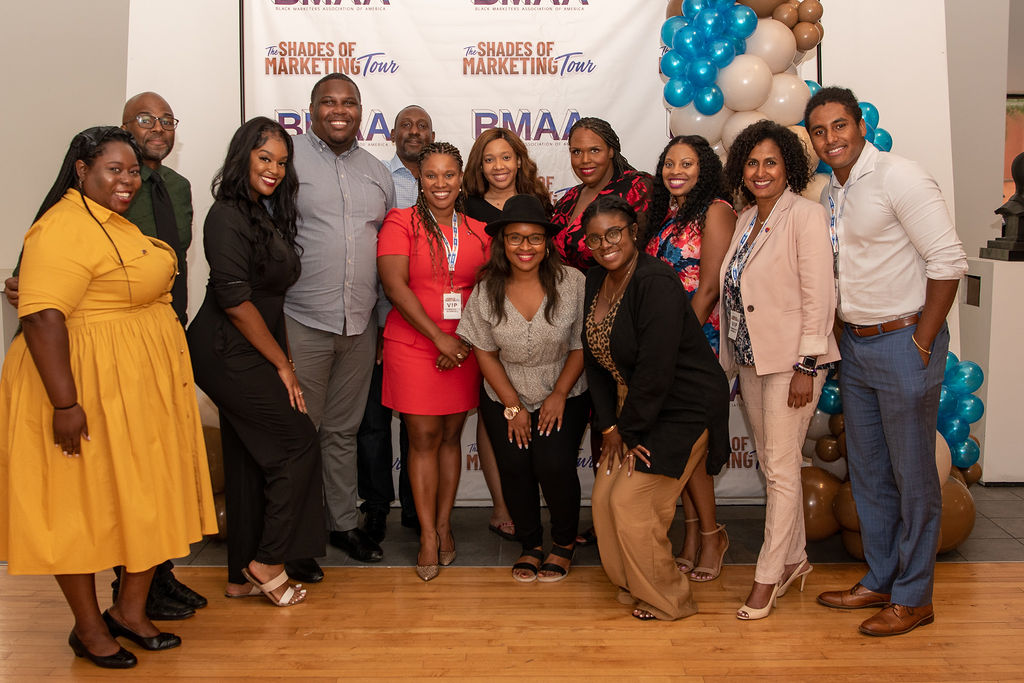
The Shades of Marketing Tour is back and better than ever before! Presented by the Black Marketers Association of America (BMAA), this tour is designed to provide...
Have you ever seen a marketing campaign and wonder how it was approved for release?
The black community is one of the world’s largest consumers for brands and products. Ironically so, there have been many campaigns which show no regard for black culture, customs, history, or common colloquialisms. Only after vast public scrutiny and backlash, does a company backpedal and try to retract offensive campaign messages. It often appears these companies aren’t genuinely sorry, just apologetic that their subliminal messaging was caught on to. With social media being more of an influence in recent years than ever, these marketing campaign faux pas went viral (for all the wrong reasons)!
In February of 2019 Gucci released a $890 sweater that clearly resembled ‘black face’. The sweater was black with a red cut out around the lips, going over the person's nose. A unique piece indeed, one that sparked tons of controversy. Gucci’s creative director at the time said racism was not his intent, but instead he meant to pay tribute to an Australian performance artist, Leigh Bowery, who was known for his flamboyant red makeup. The pull-up neck sweater did not remain for sale for long, thank goodness.. It was removed from Gucci stores and their website after social media users denounced it as resembling blackface. To provide more background info, the sweater was released during a time when old photos of politicians in blackface had been leaked and were gaining national attention. Coincidence? We’ll never know.
What could be more awkward than seeing a ‘black face’ sweater in stores? How about a noose on the runway! This is exactly what fashion house Burberry tried to get away with in 2019. During London fashion week, Burberry showcased a tan hoodie that featured a noose around the neck. It was rumored that the staff was joking about the design before the show, even hanging the noose from a ceiling. The retailer removed the hoodie from its collection and issued a lackadaisical apology. Very predictable, once social media caught fire. Suicide is not fashion. A representation of 400+ years of bondage and pain… is not fashion. It pains me to know as vivid as this imagery is, the black community per usual catches amnesia once the designer’s next collection drops. Proving we’re truly slaves to brands, no matter how they disrespect, misrepresent or don’t represent us at all .
In 2020, Burt’s Bees released quite the awkward Christmas campaign. The stereotype that black families are more times than not missing a present father, was perpetuated on front street. The advertisement featured four families, three caucasion and one African American. The three families of a lighter hue had both parents in the frame, while the brown family featured a single mother. Coincidence? Highly unlikely… but, we’ll never know. Imagine being a black parent and having to explain to your child why all the other families have a dad, besides the one that looks like you. In common fashion, the company took to social media to issue an apology for the offensive imagery. PR stated that part of the family was not available for the photoshoot, and they regrettably used this photo regardless of the unequal dynamic. Millions of black children likely saw this marketing campaign and shaped even more of the understanding that it’s normal and even expected for there to be no husband in black households. The summation of Burt’s Bees public statement was “We will do better”. As a member of the community, I surely hope so.
The black community only asks that brands be more aware and cognizant of the messages and ideologies that are portrayed in marketing campaigns. There needs to be a chain of command of approval, before anything with the potential to offend any community is released to the public. In many cases, there probably is; they just don’t care enough of the black community to show us in a positive light. The “joke” comes at the expense of the black community, as we aren’t the ones in control of media or the history books. Each of these campaigns were embarrassing, cringe worthy and awkward for any onlooker with common sense. We can only hope that equal representation of blacks in advertising soon becomes a common thing.

The Shades of Marketing Tour is back and better than ever before! Presented by the Black Marketers Association of America (BMAA), this tour is designed to provide...

We could start and end this blog post with, simply because we are needed but then that would make us biased so, here we go!